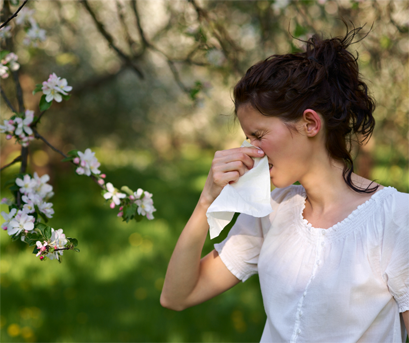Seasonal sniffles
April 18, 2022
Spring is a welcome time of year to most Minnesotans, but if it brings you sniffles along with the sunshine you may be one of the 24 million Americans that suffer from seasonal allergies. Approximately 19 million adults and 5 million children suffer from seasonal allergies, (also known as hay fever, or allergic rhinitis).
Spring brings an overabundance of pollen in the air from grasses, trees, and weeds or mold spores. Seasonal allergies are the result of an overreaction of the immune system. This causes the body to attack otherwise harmless substances, such as pollen or mold, similar to the way it attacks germs. That’s why seasonal allergies cause many of the same symptoms as the common cold: nasal and sinus congestion, watery eyes, itchy throat, coughing, and sneezing. But unlike a cold, allergies are not accompanied by a fever or body aches.
There is no cure for allergies, but the symptoms can be reduced by avoiding contact with the allergen or the use of over-the-counter medicines. It is recommended to consult with your medical provider to determine what OTC medicine is best for you.
Here are a few tips to keep yourself not just surviving, but thriving this allergy season:
- Check pollen counts. Trees typically pollinate in the early morning, so wait until later in the day to head outside. Watch out for windy days when pollen in the air can irritate symptoms.
- Keep windows closed. Put your air conditioner on the recirculation setting to keep outdoor allergens from entering your home.
- Vacuum at least weekly.
- Change clothing when you get home. Remove shoes by the door or leave them outside. Change clothes and wash in hot soapy water to avoid tracking allergens around the house.
- Take a shower. Pollen sticks to your body and hair so take a shower to wash it off, especially before heading to bed.
- Try saline. Saline nasal sprays help clear out allergens and can loosen up mucus in your nasal passage.
If you have bad seasonal allergies, your medical provider may recommend that you have skin tests or blood tests to find out exactly what allergens trigger your symptoms. Testing can help determine what steps you need to take to avoid your specific triggers and identify which treatments are likely to work best for you.
